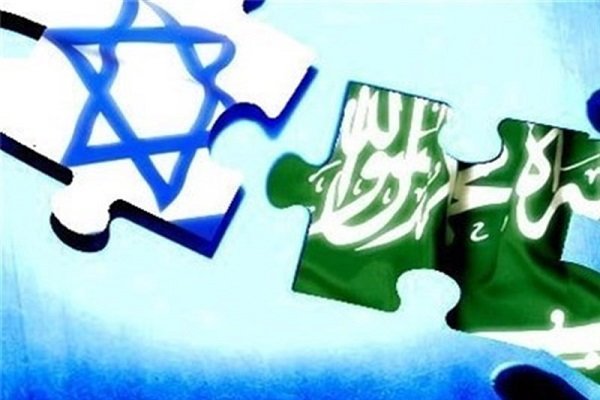Normalization of relations with Zionism at the new station

TEHRAN - The process of normalizing the relations between Arabs and the Zionist regime has entered a new phase, and Al-Khalifa and Al Saud regime officials stand in the forefront of it with Tel-Aviv.
Director of the Arab Regional Centre for World Heritage based in Bahrain, Mounir Bouchenaki has recently announced the official participation of a Zionist delegation in a cultural conference in Bahrain. “An Israeli delegation will attend the meetings. This is an international meeting organized by UNESCO, held June 24-July 4, and Bahrain is just the host”.
He added, “Any country in the UN has the right to attend the meetings. There will also be a Palestinian delegation attending.”
About four months ago, the king of Bahrain officially signed a decree to normalize relations with the Zionist regime. He also ordered the establishment of so-called “The King Hamad Global Centre for Peaceful Coexistence” in the presence of members of the board of directors for that purpose.
Qatar's Al-Sharouq newspaper also issued a report about the process of normalization of Arab countries, including the United Arab Emirates, Bahrain and Saudi Arabia, with the Zionist regime about 6 months ago. The paper focused on developments in 2017, in particular the foreign policy of the three countries - Saudi Arabia, the United Arab Emirates and Bahrain - in response to the Palestinian issue and wrote: “The year 2017 in history certainly will be mentioned as the year of the normalization of relations between Bahrain, Saudi Arabia and the UAE with the Israeli regime.”
“The last few months of 2017 are full of amazing developments in relations between the Persian Gulf Arab states, especially Saudi Arabia, the UAE and Bahrain, with the Israeli regime. Although they did hold relationship with Tel-Aviv, it was all behind closed doors. In the last months of 2017, however, the three Arab countries broke all the red lines in the normalization of relations with the Israeli regime” the newspaper continued.
Al-Sharouq also said: “We are all witness to bilateral meetings that nobody could have imagined until now. The Israeli prime minister told the British prime minister that many Arab states regard Israel as a vital alliance and not an enemy. Netanyahu also said that the happy news is that Arab countries, in an unprecedented way, are backing Israel. This is something I never imagined in my life.”
In an interview with Army Radio, Yuval Steinitz, Israel's Minister of National Infrastructure, Energy and Water Resources said that Israel has had covered contacts with Saudi Arabia amid common concerns over Iran.
In addition to Bahrain, Saudi Arabia is also trying to get ahead in normalizing relations with Tel Aviv compared with other Arab states. About two years ago, Saudi retired general and head of the Saudi Strategic Research Center, met with several officials from the Zionist regime while visiting Tel Aviv
The visit of the Saudi official to the occupied territories, his meetings with the Zionist authorities, and the memorable photos led to numerous reactions from the Arab and international media.
What is most apparent here is that Arab countries have accelerated the process of normalizing ties with the Zionist regime as Saudi Arabia is trying to exploit the bond to form an Arab front and an axis against the Islamic Republic of Iran, an attempt that, of course, does not seem to gain much success. The Saudis have also made efforts to create an international consensus on Iran, but they have not succeeded.
It is therefore clear that the recent attempt by the Saudi authorities to form an Arabic front against Iran has failed, especially since Arab countries such as Syria, Iraq, Lebanon, Palestine and Oman are also not ready to join hands with the Saudis. Some other Arab countries like Egypt have also shown that Saudi Arabia does not play a role in anti-Iranian schemes. Therefore, the formation of such a front seems far removed from the mind.
